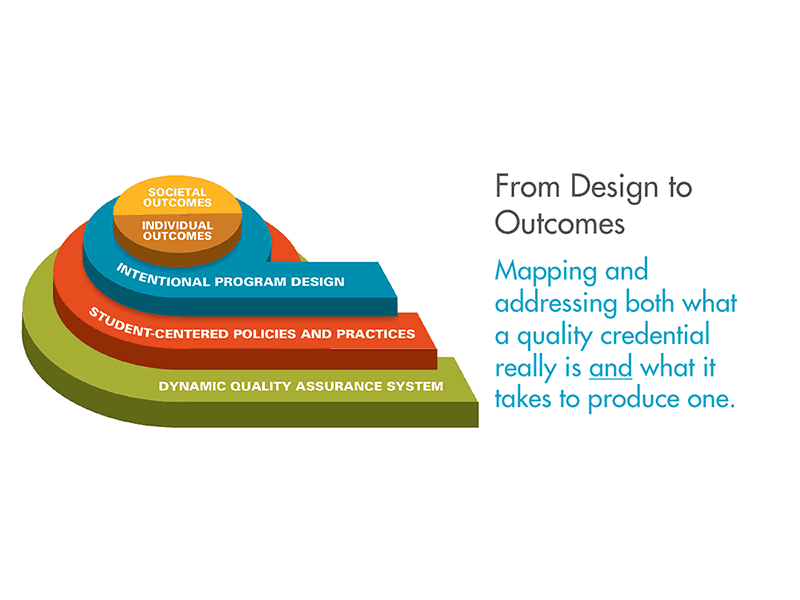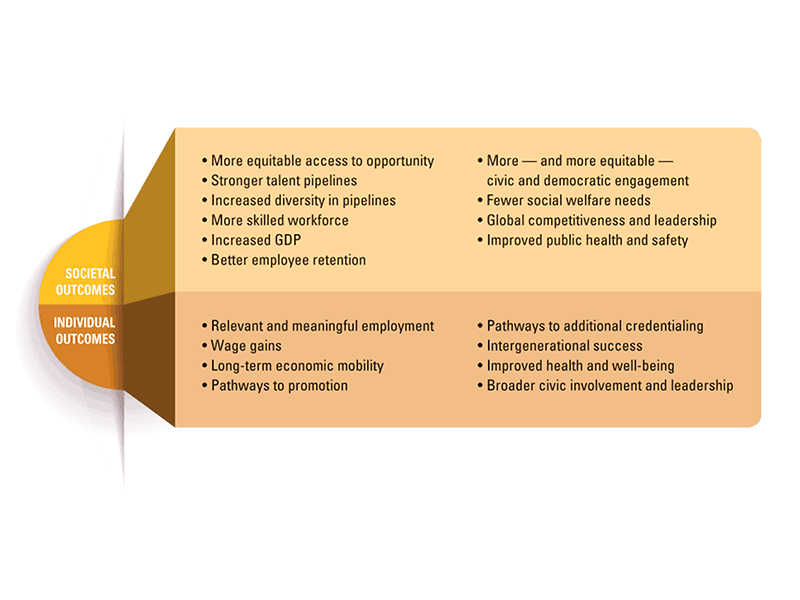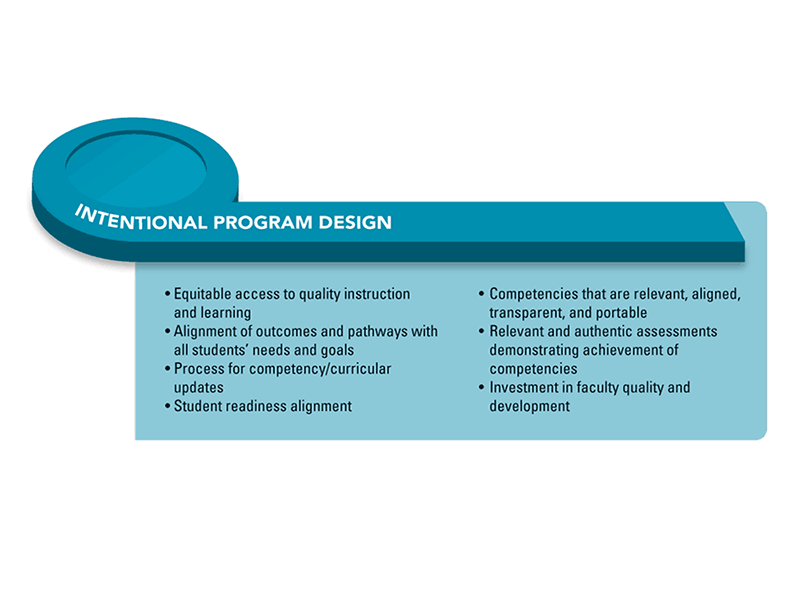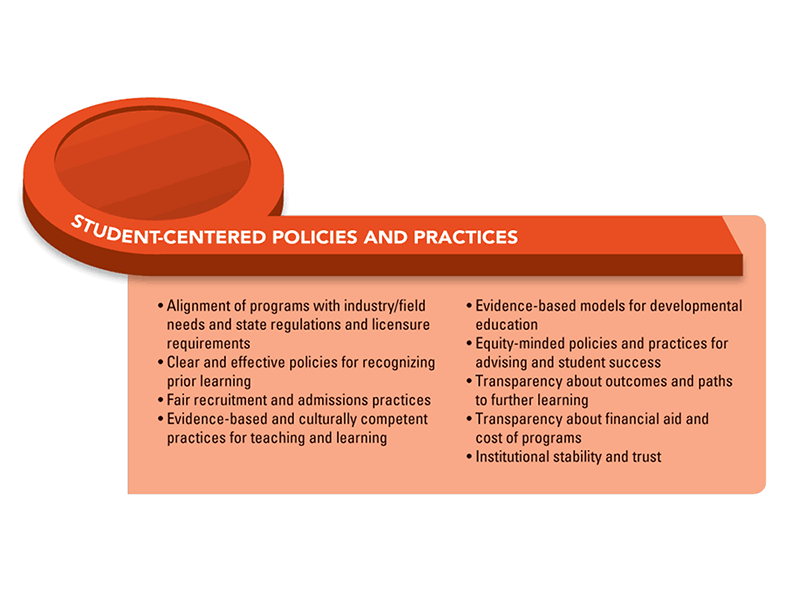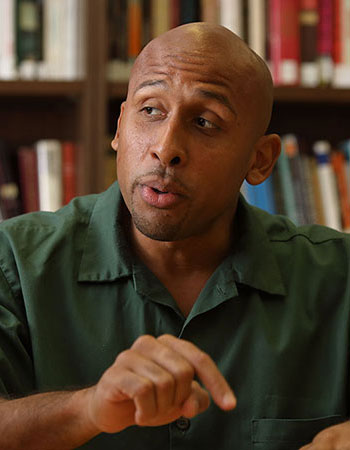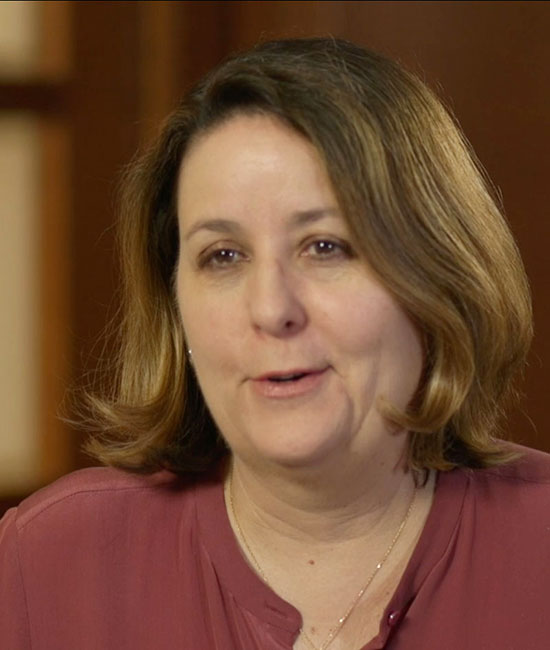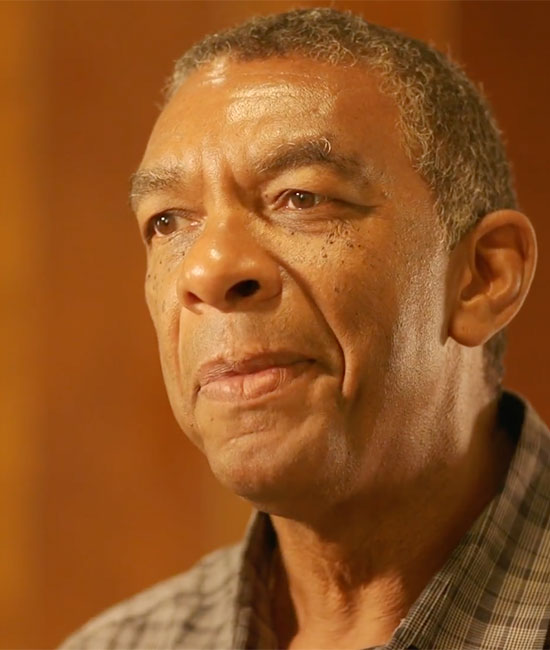Strengthening Quality in the Pursuit of Equity
In 2018, Lumina Foundation appointed and convened a Quality Credentials Task Force comprising 22 leaders in education, policy, and workforce development. The task force had two charges. First, it was to explore new ways to assure the quality of a college education and other forms of learning beyond high school. Second, it was asked to develop a broad, conceptual model of credential quality that could lead to the greater equity and quality learning that our society needs and students deserve. The group met three times over the course of one year to develop this report and the new conceptual model of credentialing quality at its core.
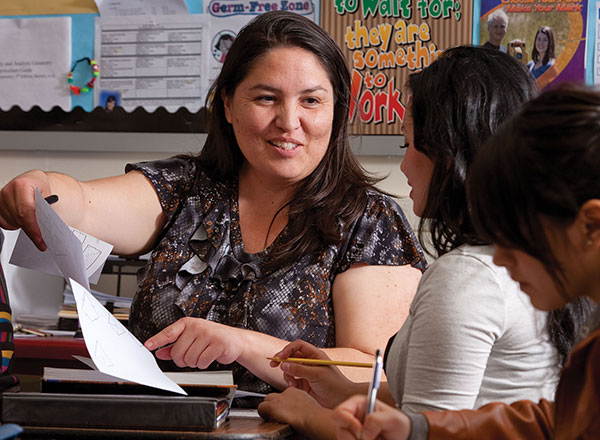
A Convening to Explore Quality and Equity in the New Credentialing Landscape
Unlocking the Nation’s Potential
A Model to Advance Quality and Equity in Education Beyond High School
Longstanding barriers to student success in colleges and universities have caused students of color to earn credentials at rates far lower than that of white students. This report explores new ways to address those inequities and assure the quality of a college education and other forms of learning beyond high school.
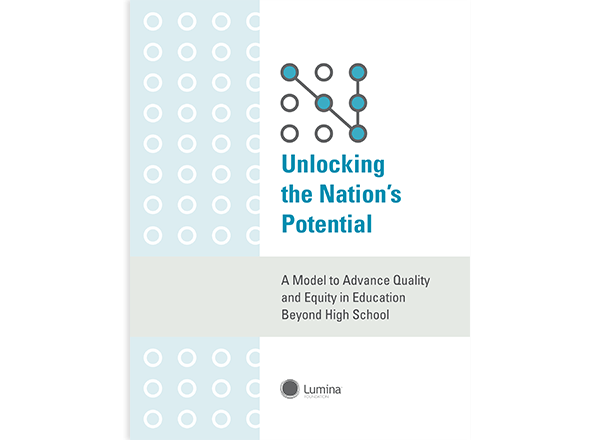
Lumina’s Commitment to Educational Quality
2-pager also includes Lumina’s racial equity commitment
The learning represented by all all degrees, certificates, industry certifications, and other credentials should help people to lead fulfilling lives and succeed in better jobs.
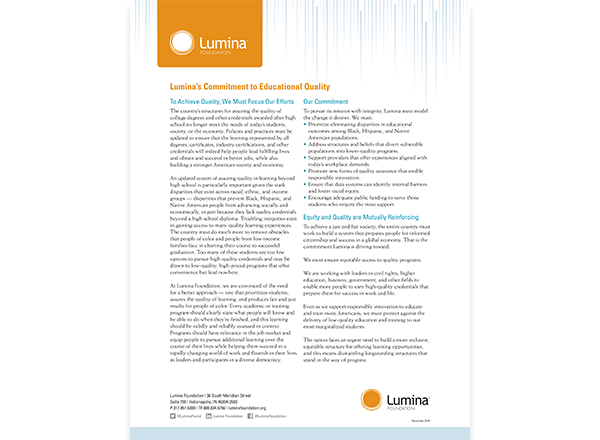
Blogs and News on Quality Assurance
Lumina’s latest thinking on new ways to assure the quality of a college education and other forms of learning beyond high school.
Video: No “magic bullet” when it comes to quality
In the past, we often defined higher educational quality in terms of prestige and exclusivity. “Now we’re creating a vision that’s a little more comprehensive,” says Debra Humphreys, Lumina vice president of strategic engagement and the Quality Credentials Task Force’s co-chair. “It starts from the outcomes – not just the individual outcomes of getting a quality credential, but the societal outcomes produced when a system is high quality and high functioning.” In this video she talks about the task force’s vision for creating a quality higher education system and why we can’t meet that goal without focusing on racial justice and equity
Quality Assurance and Improvement in Higher Education
The Role of the States
States play a fundamental role in higher education, protecting both the investment of state dollars and their citizens as their consumers. Despite this central responsibility, many states struggle with how they might help ensure students are receiving a quality educational experience.
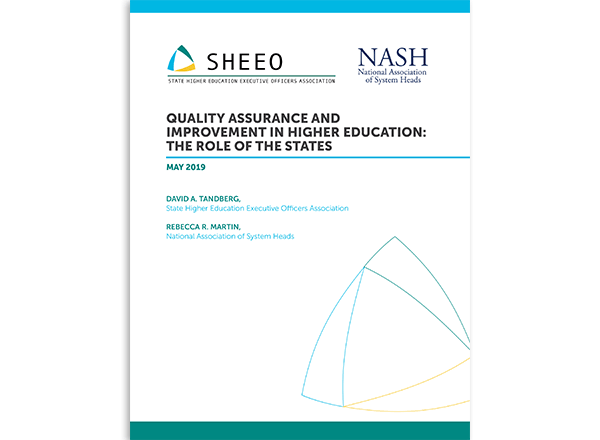
Defining and delivering on quality in higher education
The QA Commons helps institutions design programs of study to ensure better outcomes for more students and certifies programs that are well designed and have successful track records in attending to issues of employability of their graduates. Read more »
